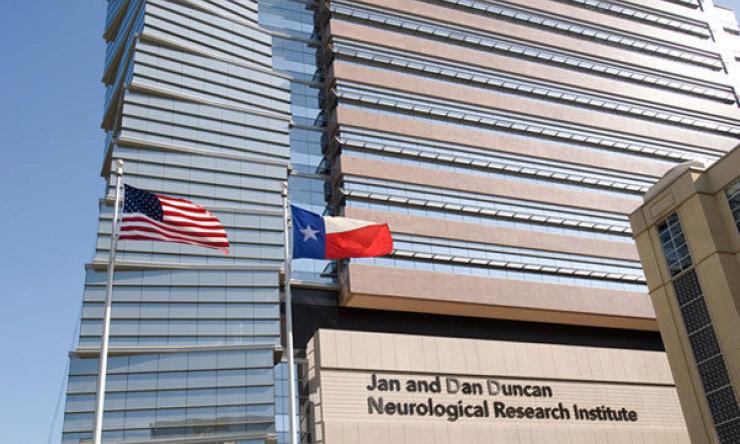Boeynaems awarded CPRIT grant to study stress response in cells
Stress is a universal feature of life, but some organisms are better equipped to cope and thrive during stressful periods of time. That isn’t always the case when it comes to humans. Stress at the cellular level is involved in numerous human diseases, from age-related neurodegeneration to cancer. So, what exactly is at play during a successful or unsuccessful stress response, and can stress responses be modulated to treat patients?
Dr. Steven Boeynaems, assistant professor of molecular and human genetics at Baylor College of Medicine, recently was awarded a Cancer Prevention and Research Institute of Texas (CPRIT) grant to continue his work studying how cells and organisms respond to stress.
Boeynaems’ lab is located at the Jan and Dan Duncan Neurological Research Institute (Duncan NRI) at Texas Children’s Hospital, and he also is a part of the Therapeutic Innovation Center (THINC), the Center for Alzheimer’s and Neurodegenerative Diseases (CAND) and the Dan L Duncan Comprehensive Cancer Center at Baylor.
“Any cell, in nature or in our bodies, during its existence, will have to deal with some conditions that deviate from its ideal environment,” Boeynaems said. “The key issue that all cells face in such conditions is that they can no longer properly fold their proteins, and that leads to the abnormal clumping of proteins into aggregates. We have seen such aggregates occur in many species and under a variety of stress-related conditions, whether it is in a plant dealing with drought or in a human patient with aging-related Alzheimer’s disease.
It appears that when cells undergo stress, the proteins tend to aggregate. However, Boeynaems says that does not appear to be the full story and there is still much to learn.
“It is becoming increasingly evident that under stressful conditions, our cells are not completely defenseless. Nature has evolved innovative mechanisms for organisms to protect their cells. For instance, instead of forming toxic clumps, some proteins form liquid droplets, which we think act in a protective manner. This is a very important cellular process that will help us understand how these diseases develop,” he said. “For example, in the past few years we have seen that defects in these liquid protein droplets can underlie diseases like ALS.”
He said that figuring out how to maintain proteins in their non-aggregated state in these liquid droplets is a part of potentially preventing, treating or slowing the progression of certain illnesses.
While he will continue his work on neurogenerative disease, thanks to CPRIT funding, he says his lab will now also venture into studying the role of cellular stress in brain cancer.
“A tumor is a very stressful environment for cells, and cancer cells need to continuously adapt to this stress to survive and/or metastasize,” he said. “Moreover, the same principles of toxic protein aggregation and protection through protein droplets seem to be at play here as well,” he said. “We have studied protein droplets not only in humans but also in stress-tolerant organisms such as plants and bacteria for years now. We propose to build and leverage on that knowledge to come up with innovative new treatments for cancer patients.”
Boeynaems joined Baylor in late 2022. He earned a bioengineering degree and Ph.D. from KU Leuven in Belgium, followed by postdoctoral work at Stanford University.










